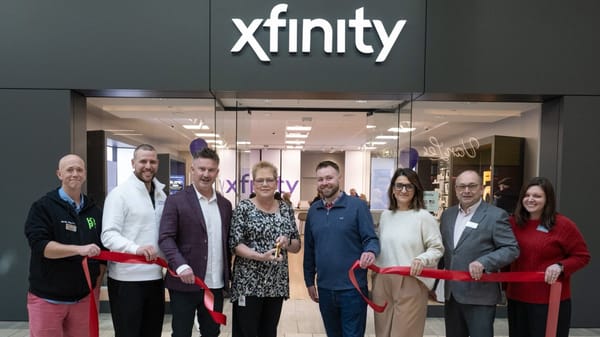Mass. lawmakers weigh a statewide age-based nicotine ban
Lawmakers and advocates are divided on the merits of "nicotine-free generation" bills

MASSACHUSETTS LAWMAKERS ON July 14 heard heated testimony on a bill that would institute a statewide ban on nicotine sales to anyone born after a certain year – a policy that 17 communities across the state have already adopted.
The Nicotine Free Generation bill – filed by Rep. Tommy Vitolo of Brookline and Sen. Jason Lewis of Winchester – would outlaw the sale of tobacco products to anyone born after January 1, 2006.
Proponents said it will keep the next generation from becoming addicted to products known to be harmful, while opponents argued that it would limit consumer choice and hurt small convenience stores.
Brookline was the first community in Massachusetts to enact a nicotine-free generation policy, banning tobacco and nicotine sales to anyone born after January 1, 2000. Retailers challenged the law, but the Supreme Judicial Court upheld it, giving the policy a green light statewide.
The policy has since been adopted in 16 more cities and other towns: Belchertown, Chelsea, Concord, Conway, Hopkinton, Malden, Manchester-by-the-Sea, Melrose, Needham, Newton, Pelham, Reading, Somerville, Stoneham, Wakefield, and Winchester.
Bhavika Kalia, a rising junior at Somerville High School, made an impassioned case to lawmakers to pass the bill at the hearing of the Joint Committee on Public Health.
“This isn't just policy to me; this is personal; it's about my friends, my classmates, my peers,” said Kalia. “It's about what I see every single day in the schools you represent: students vaping in the bathrooms between classes, friends who tried it once or twice because it seemed harmless, and now they can't stop.”
Those opposing the bill said it was infantilizing adults in the name of public health.
“These proposals are discriminatory, anti-consumer choice, anti-small business, and unnecessary in light of existing Massachusetts law,” said Ryan Kearney, vice president of the Retailers Association of Massachusetts. “The proposals are nothing more than an attempt at prohibition, which has failed in the area of alcohol, cannabis, and sports betting, and it will not work for nicotine products. What it will do is disadvantage Massachusetts merchants,” said Kearney, who said consumers will not only simply buy nicotine products out of state but purchase other products there, too, that they would otherwise have bought at a Massachusetts convenience store.
Several physicians testified in favor of the generational ban, citing the health effects of nicotine use that they are already seeing in the youth they treat.
“[I] take care of hundreds of kids who are coughing up sputum, experience shortness of breath, can no longer keep up on the field, lose weight due to nausea and vomiting, develop mental health complications, and have disrupted sleep as a direct result of vaping,” said Dr. Alicia Casey, a pediatric lung doctor at Boston Children’s Hospital. “These products are creating small and large disruptions in their everyday lives. These are your constituents, and we are failing in Massachusetts to protect them and their lungs.”
The committee also heard testimony on bills that would move in the opposite direction. One bill would ban local health boards from being able to enact nicotine-free generation policies on the municipal level – reversing the bans in the 17 communities that have passed them. Another would reverse a statewide ban on flavored tobacco products. Massachusetts banned flavored tobacco products, including menthol cigarettes – which many said were particularly targeted at children – in 2020.
“These [generational ban] bills are illiberal and the movement behind them is performing as opposed to practical,” said Alex Weatherall, the owner of a gas station convenience store in Sherborn. “I say illiberal because they propose to direct how adults live their lives. I say performative because while they're sure to have no positive effect on public health, they do satisfy a desire of nannying policy makers to feel useful.”
Massachusetts was the first state in the nation to institute a flavored tobacco ban, and those pushing the nicotine-free generation appealed to lawmakers to lead in the same way on the nicotine-free generation policy.
“I do not want my friends to be addicted to products that are going to kill them, and I do not want my friends to die because we aren't doing enough to stop billion-dollar corporations from targeting them,” said Isabel Tashie, a rising senior at Needham High School.
This article first appeared on CommonWealth Beacon and is republished here under a Creative Commons Attribution-NoDerivatives 4.0 International License.![]()
What do you think? Should the state prohibit the sale of tobacco products to those born after January 1, 2006? Voice your choice in our Votelight poll. (What's Votelight?)





